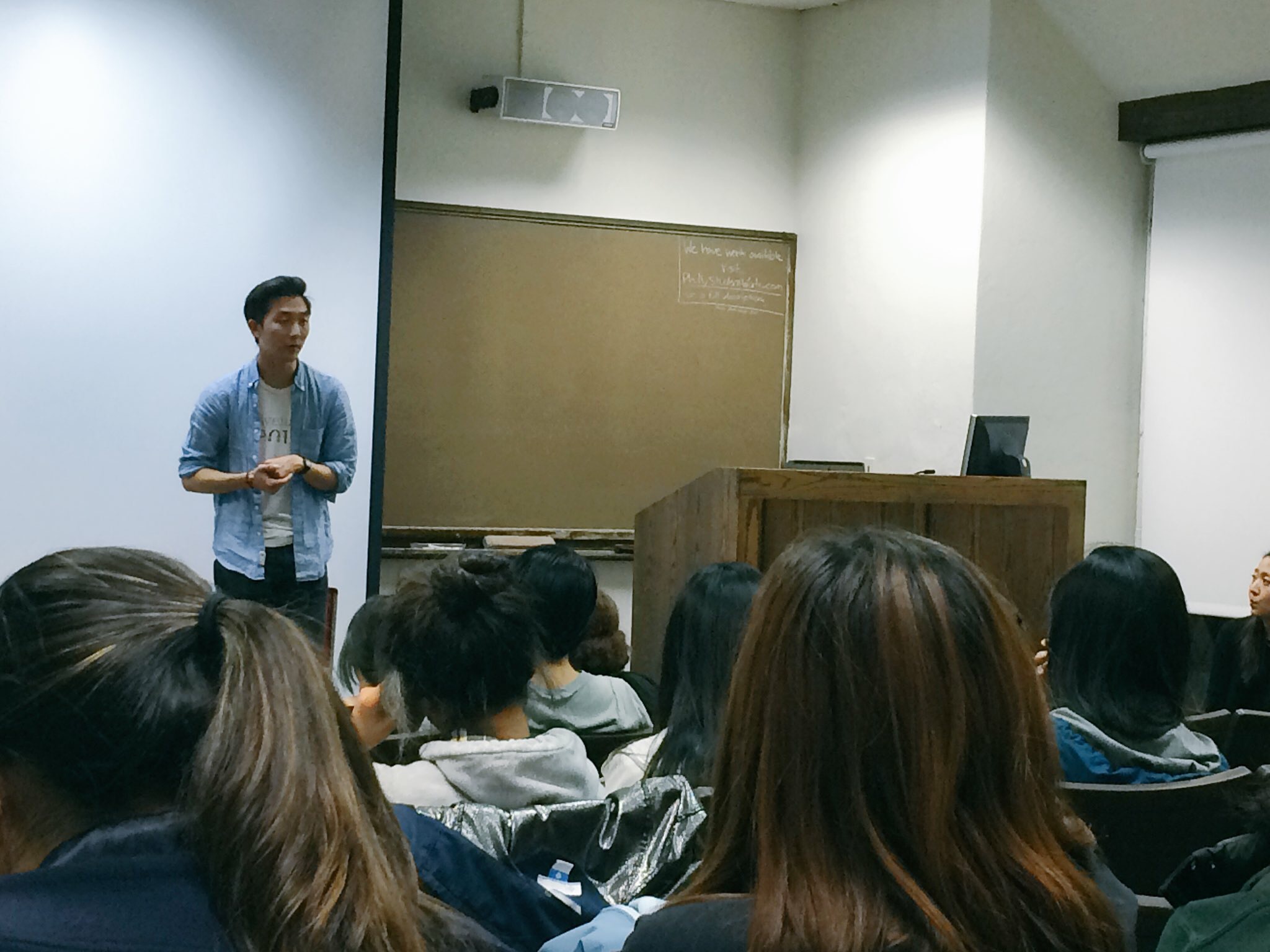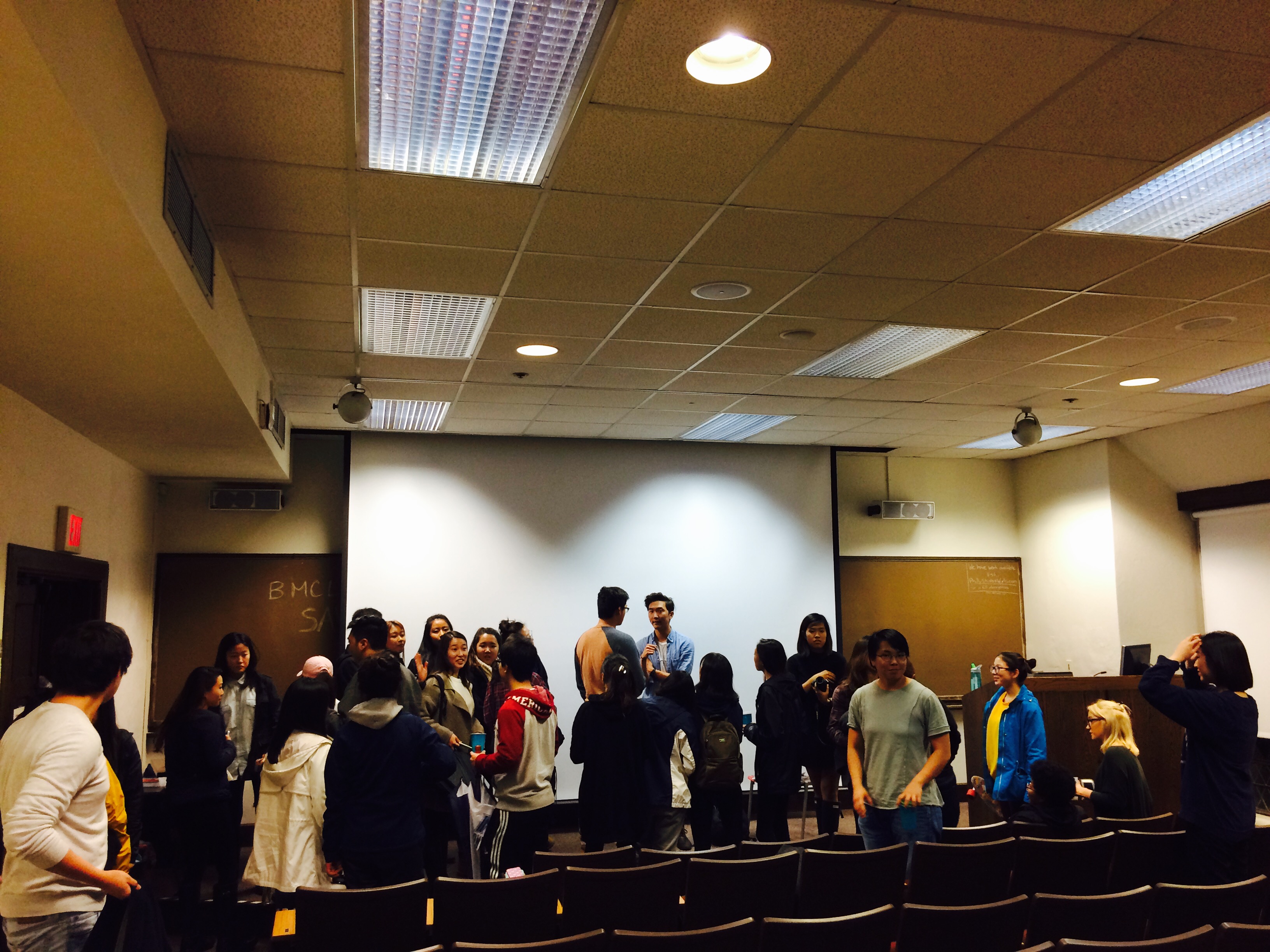On Wednesday November 9th, the Bryn Mawr College chapter of Liberty in North Korea screened the Jubilee Project documentary film “Save My Seoul” on sex trafficking in South Korea. Jubilee Project is a nonprofit that produces films and short films to aims to increase awareness around social justice issues. Director of the film Jason Lee, who graduated from the University or Pennsylvania, was also present for a Q & A at the end of the film. Students from Bryn Mawr, Villanova, Drexel, and UPenn attended the event. In the documentary, Jason Y. Lee and his brother Eddie Lee travel to South Korea to interview and record footage on the sex trafficking scene and Korean society’s stigma around the topic. The Lee brothers were first approached by a Korean church pastor who had seen their fictional video on sex trafficking and wanted them to come to Korea to cover the real life Korean issue. Jason and Eddie agreed to take on the project. Over the next 3 years, Jason and Eddie travelled back and forth between the US and Korea in search of witnesses, academics, activists, police officers, and sex workers themselves to interview. Prior to filming, they did background research on sex trafficking, but they later found that going to Korea and experiencing it first hand would be very different from anything they had only read about.
In the documentary, Jason Y. Lee and his brother Eddie Lee travel to South Korea to interview and record footage on the sex trafficking scene and Korean society’s stigma around the topic. The Lee brothers were first approached by a Korean church pastor who had seen their fictional video on sex trafficking and wanted them to come to Korea to cover the real life Korean issue. Jason and Eddie agreed to take on the project. Over the next 3 years, Jason and Eddie travelled back and forth between the US and Korea in search of witnesses, academics, activists, police officers, and sex workers themselves to interview. Prior to filming, they did background research on sex trafficking, but they later found that going to Korea and experiencing it first hand would be very different from anything they had only read about.
Communicating in fluent Korean, Jason and Eddie were able to connect with two young women who worked as prostitutes and told them their stories and backgrounds. The two women, Crystal and Esther, were very honest and candid about the abuse they had encountered over the years and both refused to have their faces shown in the film. Jason and Eddie also used hidden cameras to capture scenes in the red light district Mairi. What seemed so disheartening about the film was that many Koreans had admitted to knowing about prostitution use in Korean society. Statistics estimated that 8 in 10 of all Korean men buy prostitution at least 4 times a month. The unspoken realities of this issue and purposeful looking away mixed with systemic corruption and bribery have made prostitution crackdown almost nonexistent. There are quite a few NGOs that work toward anti-prostitution efforts, but overall societal attitudes and apathy are hard to change. Fortunately, both Crystal and Esther were saved by an NGO by the end of the film and were given the opportunity to return to school.
Q & A:
Q: I had heard about a large population of Southeast Asians, particularly Filipina, Vietnamese, and Thai women, being sex trafficked in Korea. What was the demographic breakup of what you saw in the brothels?
A: While the women featured in this documentary were primarily local Koreans, there are 3 groups of women who are trafficked: Eastern Europeans, Southeast Asians, and local Koreans. Korea is also a high exporter of sex workers.
Q: Why were there many female pimps?
A: Many of them started as prostitutes and then became pimps and involved in this vicious cycle.
Q: Any updates on where Crystal and Esther are now?
A: Sadly, we just learned 3 months ago that Crystal passed away. We think she may have committed suicide. Esther is still in college and hopes to become an advocate for former sex workers rebuilding their lives.
Q: Most difficult part about making the film?
A: Feeling like we can’t make a difference. Doubting whether the film was good enough. Doubting whether we were reaching out to enough people. I showed this to my family in Korea and they were like “Why do you want to make Korea look bad.” Korea is all about saving face.
Q: What can individuals do?
A: For the men in the room, we really have to think about what does it mean to be men of character and what it’s like to really not treat women like objects. For the women, I really believe it’s going to be the female activists that are going to bring about change. Women need to hold men more accountable.
Like Save My Seoul on Facebook
Twitter @savemyseoul
Website: www.savemyseoul.com

